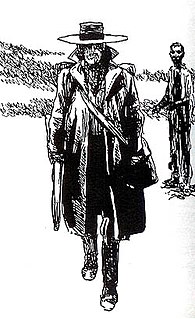This page is based on this
Wikipedia article Text is available under the
CC BY-SA 4.0 license; additional terms may apply.
Images, videos and audio are available under their respective licenses.
The Mongols are an East-Central Asian ethnic group native to Mongolia and to China's Inner Mongolia Autonomous Region. They also live as minorities in other regions of China, as well as in Russia. Mongolian people belonging to the Buryat and Kalmyk subgroups live predominantly in the Russian federal subjects of Buryatia and Kalmykia.
Articles related to Mongolia include:

The Pax Mongolica, less often known as Pax Tatarica, is a historiographical term modelled after the original phrase Pax Romana which describes the stabilizing effects of the conquests of the Mongol Empire on the social, cultural and economic life of the inhabitants of the vast Eurasian territory that the Mongols conquered in the 13th and 14th centuries. The term is used to describe the eased communication and commerce the unified administration helped to create and the period of relative peace that followed the Mongols' vast conquests.

Chagatai Khan was the second son of Genghis Khan. He was Khan of the Chagatai Khanate from 1226-1242 C.E. The Chagatai language and Chagatai Turks take their names from him. He inherited most of what are now the five Central Asian states after the death of his father. He was also appointed by Genghis Khan to oversee the execution of the Yassa, the written code of law created by Genghis Khan, though that lasted only until Genghis Khan was crowned Khan of the Mongol Empire. The Empire later came to be known as the Chagatai Khanate, a descendant empire of the Mongol Empire. Chagatai Khan was considered hot-headed and somewhat temperamental by his relatives, because of his attitude of non-acceptance of Jochi as Great Khan. He was the most vocal about this issue among his relations. Chaghatai is in some stories held responsible for the death of Jochi and Genghis Khan. At any rate, he was animated by the soldier-like spirit of his father, and succeeded in keeping order among as heterogeneous a population as a kingdom was ever composed of.
Yam was a supply point route messenger system extensively used and expanded by Genghis Khan and also used by subsequent Great Khans and Khans.

Tarmashirin Khan was the khan of the Chagatai Khanate following Duwa Timur.

Yassa is a spicy dish prepared with onions and either marinated poultry or marinated fish. Originally from Senegal, yassa has become popular throughout West Africa. Chicken yassa, prepared with onions and lemon, is a specialty from the Casamance region in the south of Senegal.

Afaq Khoja, born Hidayat Allah (هدایتالله), a.k.a. Apaq Xoja, or more properly Āfāq Khwāja was a religious and political leader with the title of Khwaja in Kashgaria. He was also known as Khwāja Hidāyat Allāh.

The Dead Man was a science fiction strip in the British comic 2000 AD by writer John Wagner and artist John Ridgway, published in black and white in 1989–90. Although it was not billed as a Judge Dredd story, it featured Dredd as the amnesiac protagonist known only as the Dead Man. It was part of a series of stories that set the scene for the main Judge Dredd story of 1990, "Necropolis".
Kebek was khan of the Chagatai Khanate from 1309 until 1310, and again from c. 1318 until his death.

Genghis Khan was the founder and first Great Khan of the Mongol Empire, which became the largest contiguous empire in history after his death. He came to power by uniting many of the nomadic tribes of Northeast Asia. After founding the Empire and being proclaimed "Genghis Khan", he launched the Mongol invasions that conquered most of Eurasia. Campaigns initiated in his lifetime include those against the Qara Khitai, Caucasus, and Khwarazmian, Western Xia and Jin dynasties. These campaigns were often accompanied by large-scale massacres of the civilian populations – especially in the Khwarazmian and Western Xia controlled lands. By the end of his life, the Mongol Empire occupied a substantial portion of Central Asia and China.
Shikhikhutag was a high-ranking minister of the Mongol Empire in its early years, and a stepbrother of Genghis Khan, founder of the empire.
The Kombe language, or Ngumbi, is a Coastal Bantu language spoken by the Kombe people of Equatorial Guinea, one of the Ndowe peoples of the coast. It is mutually intelligible with Yasa.
Jaiyk, also known as Cayık or sometimes Jayık Khan, is the god of rivers in Turkic mythology. He is an important deity in folk beliefs.
YASA is a British manufacturer of electric motors and motor controllers for use in automotive and industrial applications. The company was founded in 2009 by the CTO Dr Tim Woolmer who is also the holder of a number of related motor technology patents.
Although initial commercial adoption was in high-performance cars, markets for YASA e-motors and generators now include the off-road, marine, industrial and aerospace sectors.







